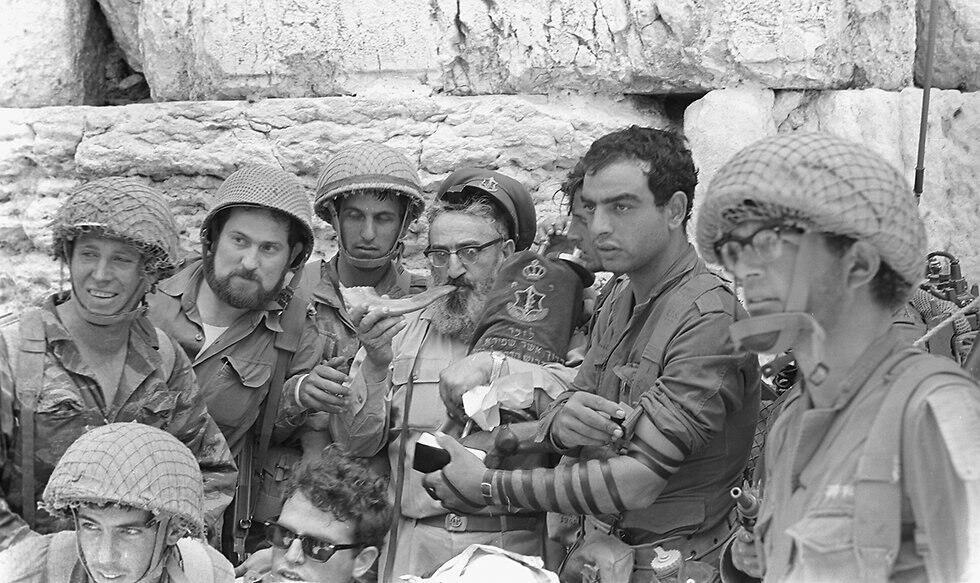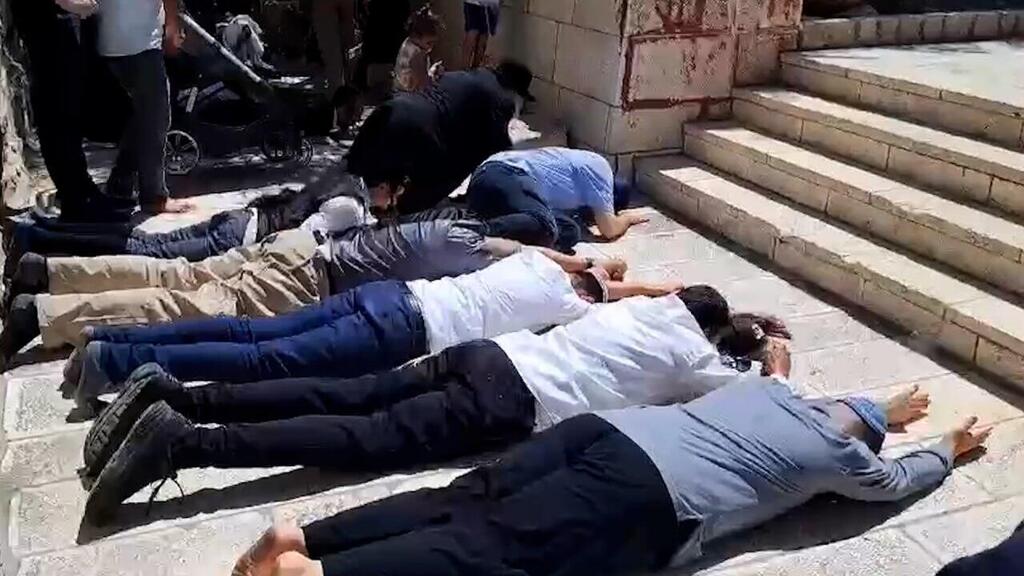Getting your Trinity Audio player ready...
Following National Security Minister Itamar Ben-Gvir's controversial call to establish a synagogue on the Temple Mount, sparking reactions across the political spectrum, a historical precedent has come to light. In 1967, shortly after the Six-Day War, a synagogue was briefly established on the Temple Mount by former chief military rabbi Shlomo Goren.
Rabbi Goren, who played a pivotal role in the initiative, recounted in his autobiography how he founded a seminary on the Temple Mount just days after its liberation. "We opened a seminary near the Mughrabi Bridge and put up a sign reading 'The Seminary of the Military Rabbinate on the Temple Mount,'" Goren wrote. He described evacuating a house in the Shuafat neighborhood to accommodate the seminary, where regular prayers were held, and Torah readings conducted.
The seminary operated for approximately forty days, during which Goren stationed ten military officers on the Temple Mount. However, the initiative was halted when then-defense minister Moshe Dayan ordered Goren to dismantle the seminary and remove all religious materials and personnel, as control of the Temple Mount was handed over to the Muslim Waqf.
After the seminary's closure, Rabbi Goren relocated it to a building above the Western Wall, adjacent to the Temple Mount. There, he established a synagogue where he led regular prayers, particularly on Yom Kippur and Tisha B'Av, in a space that bordered the sacred site.
The Chief Rabbinate of Israel has since prohibited access to the Temple Mount without undergoing a special cleansing ritual. The Rabbinate's restrictions still apply to the area surrounding the site, and ultra-Orthodox rabbis have historically opposed ascending the Temple Mount, fearing it could provoke tensions with neighboring nations—a sentiment that also contributed to early opposition to the establishment of the State of Israel.




